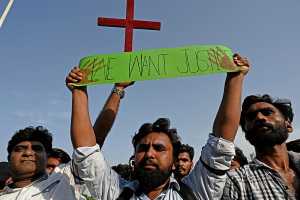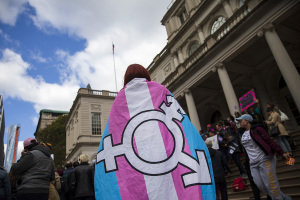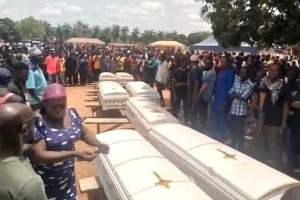Episcopal Church leader Michael Curry rejects claim that bishops get ‘free pass on behavioral issues’
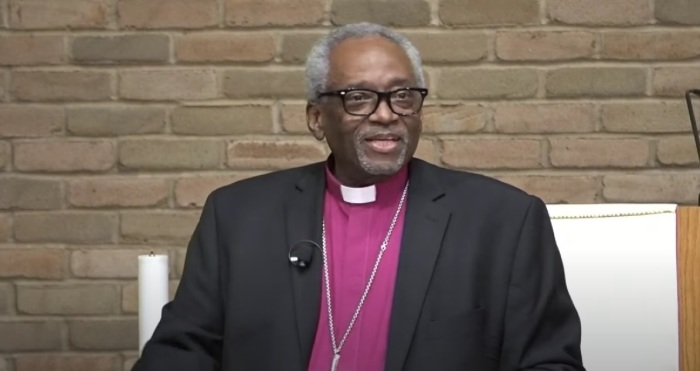
Episcopal Church Presiding Bishop Michael Curry recently rejected the claim that bishops in the mainline denomination get a “free pass on behavioral issues,” amid accusations that a retired bishop physically and verbally harassed an official within the denomination.
Recently, Episcopal Church House of Deputies President Julia Ayala Harris made public an allegation that a retired bishop had "physically overpowered" her and made "inappropriate verbal statements” last year.
In a video message posted Tuesday, Curry addressed the allegations and fallout, which included a recent statement by several Episcopal bishops claiming that “there is a perception — or reality — that bishops get a free pass on behavioral issues.”
“None of us want that to be the case,” Curry stated. “For the sake of the Gospel, for the sake of our integrity, and, above all, for the sake of the well-being of every child of God who is a part of this church, we cannot, must not, and we will not sit idly by when anyone is hurt or harmed in our midst.”
Curry also spotlighted the work of the Standing Commission on Structure, Governance, Constitution and Canons, which is a representative body made up of 10 laity and 10 clergy that will oversee the complaint process.
The presiding bishop called on the Standing Commission to review past work on investigations into misconduct allegations against clergy and propose any necessary changes to the denomination's leadership.
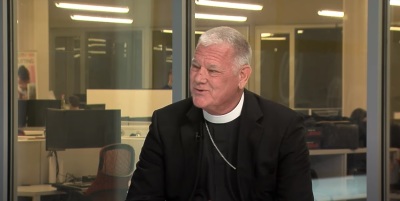
“We cannot change the past, and it is always true, as the Prayer Book says, we have ‘erred and strayed [from God’s ways] like lost sheep,’” he continued.
“But we can learn from the past, we can learn from our shortcomings and our good work, and we, having learned from our past, can turn, joining together to create a future, constructed in the spirit of Jesus and his way of love, where all are welcome, and all are safe.”
Last month, Ayala Harris wrote a public letter accusing an unnamed former bishop of harassment and filed a Title IV complaint under the purview of the Disciplinary Board for Bishops.
Title IV refers to the section of the Episcopal Church's bylaws that addresses the "ecclesiastical discipline" procedures whenever a church leader is accused of misconduct.
"Going through the Title IV process this past year was not something I would want anyone to have to endure," Ayala Harris wrote in the letter, as quoted by Episcopal News Service.
"Yet, living through that experience has given me an important perspective that I can apply in my leadership role, and it has renewed my long-lasting commitment to increased safety in our communities."
The accused retired bishop was removed from serving on multiple denominational governance bodies and put on restrictive ministry during the Title IV process, reported ENS.
Although Harris had declined to name the accused retired bishop, a later report revealed that it was the Rt. Rev. Edward J. Konieczny, former bishop of the Episcopal Diocese of Oklahoma.
The Rt. Rev. Poulson Reed, who serves as bishop over the Oklahoma diocese, sent a letter on Tuesday confirming that Konieczny was the accused retired bishop and that Reed, himself, was not involved in the disciplinary process.
“I want to emphasize strongly and in the clearest possible terms that in the Episcopal Diocese of Oklahoma, we do not and will not tolerate abuse or harassment, especially by religious leaders,” wrote Reed.
“Our diocesan disciplinary process is robust and does not minimize or downplay reports of abuse among our congregations and institutions. We continue to evaluate and strengthen the implementation of our disciplinary process in Oklahoma to ensure justice and fairness.”
Reed called for prayers for both Ayala Harris and Konieczny and acknowledged that “there is a widespread perception (and in some cases, reality) that bishops are treated too leniently, and complainants too often denied justice.”
“Without knowing what specifically happened in this particular case, I look forward to listening to and working with others (clergy and lay) to evaluate Title IV and make it more just for everyone involved,” he added.















